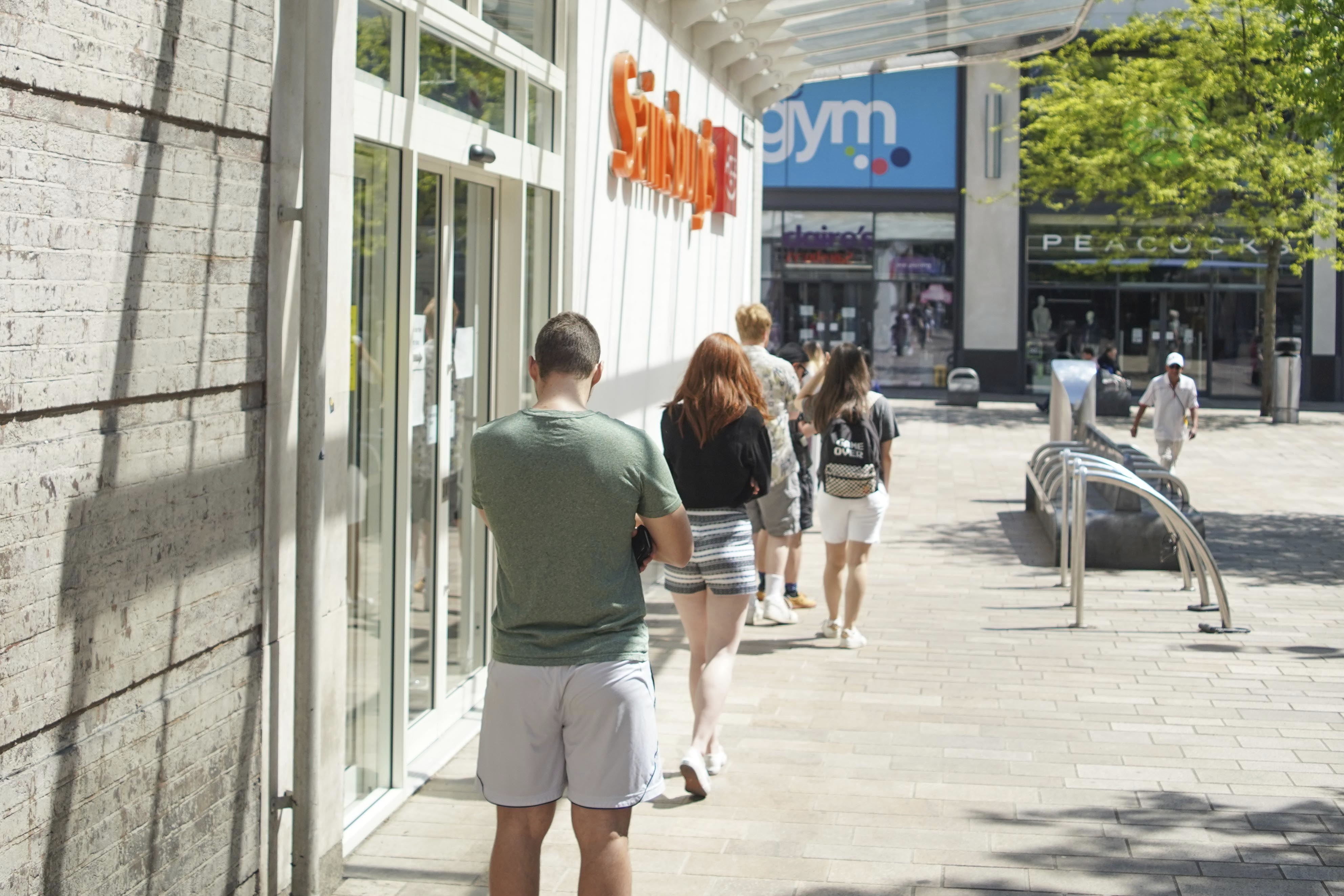Two-meter distancing might halve infection risk compared to one meter

The news: Keeping people two meters apart from each other is far more effective than just one at reducing the risk of spreading coronavirus, according to a new analysis in The Lancet. The researchers combed through 172 observational studies across 16 countries and then applied statistical analysis to pull out estimates of infection risk. The models they used on nine key studies found that the transmission risk when people stood at least one meter away was an average of around 3%, but rose to about 13% when people were standing within one meter. The risk of transmission roughly halves for every extra meter of distancing up to three meters, the modeling suggested.
Masks, too: The researchers also found that both face coverings and eye protection significantly reduce the risk of spreading the virus: an analysis of the studies found that masks cut the risk of infection from 17% to 3% while eye protection reduces it from 16% to 6%. Other factors such as how long the people had been exposed were not taken into account as they were not part of the original data sets.
Why it matters: Governments around the world are discussing how to ensure people’s safety while lifting lockdown restrictions. It’s clear from this peer-reviewed paper that keeping people as physically apart from each other as possible has to be at the core of any sensible strategy. The findings should also inform workplaces, restaurants, bars, and movie theaters that are currently trying to work out how to get people back through their doors while protecting them from spreading covid-19 to each other.
Differing approaches: Distancing advice varies from country to country. In the UK it’s two meters currently, although there is some pressure to reduce that distance. In the US, the CDC advises six feet (1.8 meters), Australia and Germany say 1.5 meters, and France has one meter as its official guideline. The World Health Organization recommends people stay one meter apart.
Deep Dive
Biotechnology and health
How scientists traced a mysterious covid case back to six toilets
When wastewater surveillance turns into a hunt for a single infected individual, the ethics get tricky.
An AI-driven “factory of drugs” claims to have hit a big milestone
Insilico is part of a wave of companies betting on AI as the "next amazing revolution" in biology
The quest to legitimize longevity medicine
Longevity clinics offer a mix of services that largely cater to the wealthy. Now there’s a push to establish their work as a credible medical field.
There is a new most expensive drug in the world. Price tag: $4.25 million
But will the latest gene therapy suffer the curse of the costliest drug?
Stay connected
Get the latest updates from
MIT Technology Review
Discover special offers, top stories, upcoming events, and more.